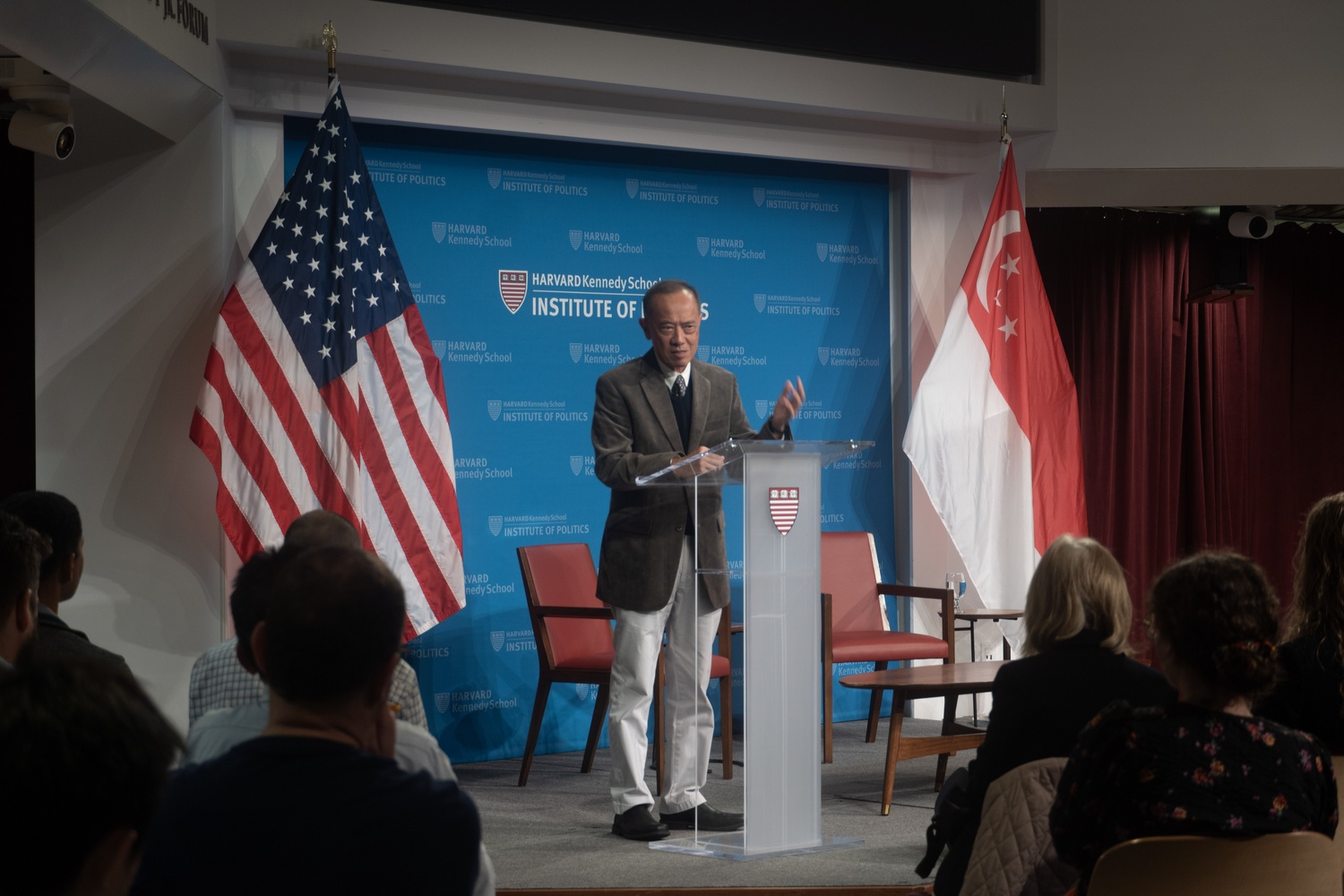
News
Summers Will Not Finish Semester of Teaching as Harvard Investigates Epstein Ties

News
Harvard College Students Report Favoring Divestment from Israel in HUA Survey

News
‘He Should Resign’: Harvard Undergrads Take Hard Line Against Summers Over Epstein Scandal

News
Harvard To Launch New Investigation Into Epstein’s Ties to Summers, Other University Affiliates

News
Harvard Students To Vote on Divestment From Israel in Inaugural HUA Election Survey
Former Singapore Foreign Minister Urges Power Sharing Among Asian Countries at IOP

Former Minister for Foreign Affairs of Singapore George Yeo said his country and other Asian countries have a duty to share regional power at an Institute of Politics Forum on Wednesday night.
Yeo, who helped negotiate the pivotal 2003 U.S.-Singapore Free Trade Agreement, said that Asia’s future economic success depends on cooperation and a balance of power between countries rather than outright competition as the economies of India and China continue to grow.
“For Southeast Asia, an equilibrium is desperately important,” Yeo said.
Yeo opened his remarks by criticizing President Donald J. Trump’s actions towards Asian countries.
“Trump has been very hard on Asian countries, threatening them, browbeating them, bullying them,” Yeo said.
Over the past year, the Trump administration has enacted tariffs ranging from 46 to 49 percent on imports from Cambodia, Laos, Myanmar, and Vietnam, forcing the region to rely more heavily on trade deals with China. His actions have been widely criticized by regional leaders, including Singapore Prime Minister Lawrence Wong.
Yeo compared the behavior of the U.S. to several fallen states in history such as the Ottoman and Roman Empires, warning that if Trump’s approach to international relations continued, the U.S. would face a similar fate.
“Speak softly. Carry a big stick. You’ll go far,” Yeo said, referencing a quote from former U.S. President Theodore “Teddy” Roosevelt Jr.
“The U.S. is not speaking softly,” he said.
Yeo added that Southeast Asian countries should prepare for the U.S. to make unpredictable foreign policy decisions, which may increase China’s economic power over the region.
“Throughout Asia, we are all feeling the rise of China, and if the U.S. retreats, there will be a transitional period where the imbalance may become very unsettling,” Yeo said.
“Southeast Asia is where the mandalas of China, India, and the West overlap,” Yeo said, referencing a metaphor first made by the Australian historian Wang Gungwu. Yeo said he hoped that the U.S. and China would learn to cooperate despite the difficulties caused by three global superpowers exerting influence in the same region.
“I think it’s possible. It will take time, but it's worth doing,” Yeo said.
Yeo added that a multipolar world requires the global embrace of “heterogeneity.”
“The poles are not all the same. They’re different, but it’s a world where we have to be more respectful of one another, restrain from trying to make others like us, and look after each other’s interests,” Yeo said.
Yeo ended his talk by discussing American politics.
“When you turn inwards and stop learning from others, your decline is terminal. So what is happening in America should be fought,” he said when asked about the difficulties the “Make America Great Again” movement poses to the relationship between the U.S. and China.
“In bad times, people disappear, people break. The people who remain firm, committed to the vision, they are the people who will build the institution for the future,” Yeo said.
Want to keep up with breaking news? Subscribe to our email newsletter.
